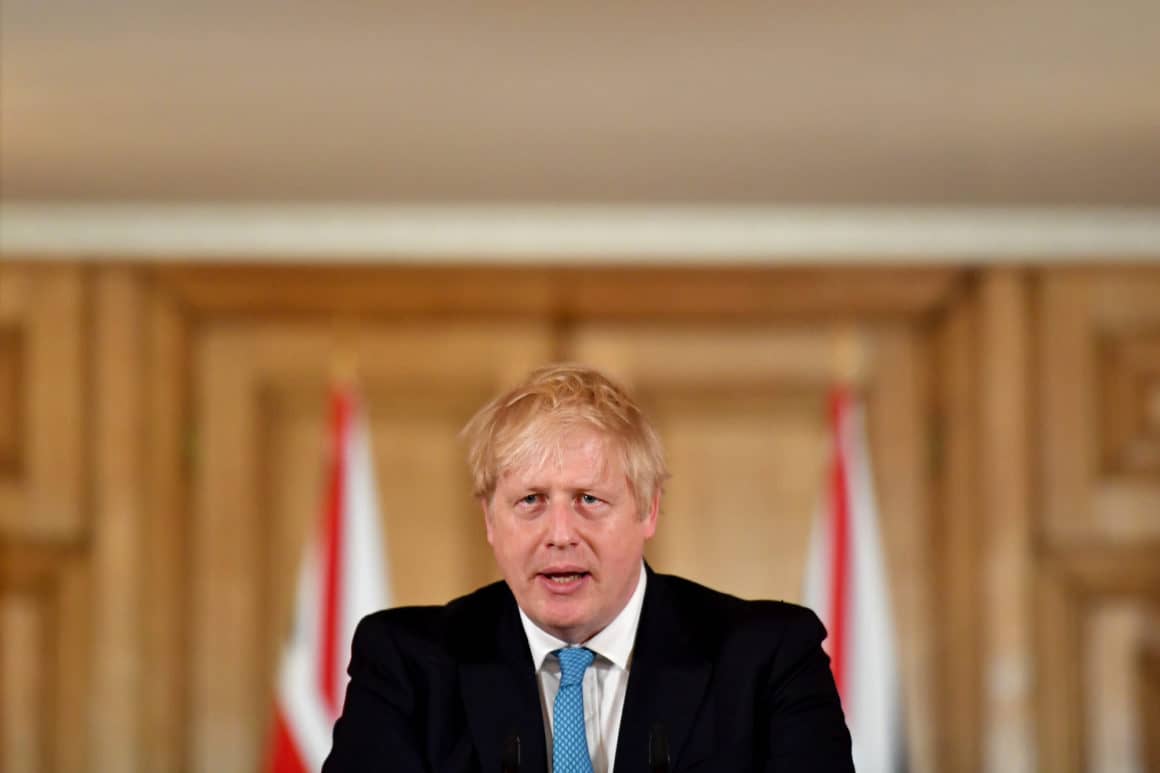
A ban on leaving Britain without a reasonable excuse is included in new coronavirus laws coming into force next week – with £5,000 fines for those who break the rules.
The legislation for restrictions over the coming months, as the Government sets out its road map for coming out of lockdown, was published on Monday. Entitled the Health Protection (Coronavirus, Restrictions) (Steps) (England) Regulations 2021, the laws come into force on March 29.
According to the legal document: ‘The Regulations also impose restrictions on leaving the United Kingdom without a reasonable excuse (regulation 8).’
The law says no-one may ‘leave England to travel to a destination outside the United Kingdom, or travel to, or be present at, an embarkation point for the purpose of travelling from there to a destination outside the United Kingdom’ without a reasonable excuse.
It suggests anyone who breaks such rules could face a £5,000 fine. There is also a £200 fixed penalty notice for failing to fill in a travel declaration form – giving person details and reason for travel – for those planning to leave the UK.
The need for the restrictions must be reviewed by April 12, and at least once every 35 days thereafter, the legal papers say. The laws expire on June 30, unless they are scrapped or amended in the meantime.
It has now emerged that France is likely to be added by the end of the week to a ‘red list’ of countries requiring hotel quarantine.
Health officials are increasingly concerned by a surge in cases of the South African Covid variant across the Channel. A minister even suggested the whole of the continent could be put on the red list because of botched vaccine rollouts.
That might mean the need to quarantine after foreign trips would stay in place until at least August.
The revelation comes amid warnings from Boris Johnson about a third wave of coronavirus currently sweeping across Europe – which could ‘wash up on our shores’.
The travel ban does not apply to those going to the common travel area of the Channel Islands, Isle of Man and the Republic of Ireland unless that is not the final destination.
Exemptions also apply including for those needing to travel for work, study, for legal obligations or to vote, if they are moving, selling or renting property, for some childcare reasons or to be present at a birth, to visit a dying relative or close friend, to attend a funeral, for those getting married or to attend the wedding of a close relative, for medical appointments or to escape a risk of harm.
Care minister Helen Whately has repeated official warnings that booking a trip abroad would be ‘premature’.
But top scientists yesterday backed allowing foreign holidays this summer.
Carl Heneghan, a professor of evidence-based medicine at Oxford University, said: ‘We were allowing people to go on holiday last summer, without any testing programme, and now we have got the vaccination programme and the testing programme. Given that, you have to ask the question, ‘What will it take if that’s not sufficient?’
Professor Robert Dingwall, who sits on the Government’s scientific advisory group Nervtag, added: ‘We should have been able to complete the two rounds of vaccinations for the over-50s and clinically vulnerable by the end of April, early May.
‘Add on a couple of weeks for these things to take effect and you wouldn’t really have much of a case for going beyond the end of May [for extending the travel ban].’
However, given the picture in Europe it appears increasingly likely that foreign holidays will be delayed until at least June 21, the same day the Government plans to remove all domestic restrictions.
The slow rollout of the vaccination programme in Europe means most countries popular with Britons are unlikely to be declared ‘green’ until late summer. This would make foreign trips impossible for most holidaymakers because of the ten days of quarantine.
Putting France on the red list will mean returning British nationals are forced to isolate in an approved hotel at their own expense.
Non-British residents will be banned from entering and direct flights will also cease. Exemptions would be made for hauliers to protect trade.
Health minister Lord Bethell of Romford yesterday told peers: ‘The possibility is that we will have to red-list all of our European neighbours. But that would be done with huge regret because we are a trading nation.’
Thirty-five countries are on the red list, including the whole of South America, southern Africa, the United Arab Emirates and Qatar. Portugal was on the list but was removed last week.
The ban on foreign holidays was implicit because leisure trips abroad were not one of the reasons allowed for leaving the house.
But, from Monday it will be officially placed in law at the same time as the ‘stay at home’ message is lifted.
The foreign travel ban does not apply to those going to the common travel area of the Channel Islands, Isle of Man and the Republic of Ireland.
Exemptions apply to those needing to travel for work, study, for legal obligations or to vote. Births, weddings and visiting a dying relative or close friend also qualify.
Advertise with the mоѕt vіѕіtеd nеwѕ ѕіtе іn Antigua!
We offer fully customizable and flexible digital marketing packages.
Contact us at [email protected]

















I wished the entire listings were published of prohibited countries.
“direct flights will also cease”
IF this is globally, not just EU, Antigua & the Caribbean will be severely impacted.
Await clarity.
Antigua is not currently on the red list
Comments are closed.